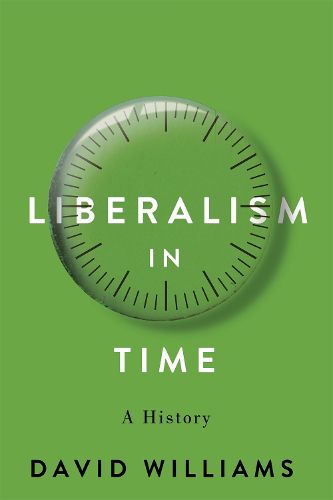Readings Newsletter
Become a Readings Member to make your shopping experience even easier.
Sign in or sign up for free!
You’re not far away from qualifying for FREE standard shipping within Australia
You’ve qualified for FREE standard shipping within Australia
The cart is loading…






We are living through a crisis that casts doubt on the idea of progress, the defining trope of liberalism. The concept of progress as the achievement of liberalism developed over time, in relation to changing ideas about time. Understanding skepticism about progress requires us to ask questions about the relationship between liberalism, time, and history.
Drawing on a range of thinkers from John Locke to John Rawls, Liberalism in Time links the history of liberal thought with wider changes in theology, geology, archaeology, and biology. David Williams explores the diverse ways in which liberal thinkers have understood the relationship between liberalism and time, demonstrating that liberal patterns of thought are characterized by temporal paradoxes. Liberal thinkers ostensibly understand liberalism as situated within time and history, but they treat it as timeless when it is convenient.
Reflecting on whether and how liberal thinking about time and history is suitable for the challenges liberalism now faces, Liberalism in Time shows how temporal paradoxes have characterized liberal patterns of thought throughout history.
$9.00 standard shipping within Australia
FREE standard shipping within Australia for orders over $100.00
Express & International shipping calculated at checkout
Stock availability can be subject to change without notice. We recommend calling the shop or contacting our online team to check availability of low stock items. Please see our Shopping Online page for more details.
We are living through a crisis that casts doubt on the idea of progress, the defining trope of liberalism. The concept of progress as the achievement of liberalism developed over time, in relation to changing ideas about time. Understanding skepticism about progress requires us to ask questions about the relationship between liberalism, time, and history.
Drawing on a range of thinkers from John Locke to John Rawls, Liberalism in Time links the history of liberal thought with wider changes in theology, geology, archaeology, and biology. David Williams explores the diverse ways in which liberal thinkers have understood the relationship between liberalism and time, demonstrating that liberal patterns of thought are characterized by temporal paradoxes. Liberal thinkers ostensibly understand liberalism as situated within time and history, but they treat it as timeless when it is convenient.
Reflecting on whether and how liberal thinking about time and history is suitable for the challenges liberalism now faces, Liberalism in Time shows how temporal paradoxes have characterized liberal patterns of thought throughout history.